It has struck me once before and it strikes me again that Ling Zisheng is a man with a knack for turning crises into opportunities. His fated connection with the indomitable Cheng Shaoshang seems to be largely a series of crisis moments that allow him access to her in ways he would otherwise not have. From the first it is his determination to get to the bottom of the armaments fraud that sets the stage for their first encounter and other subsequent encounters. Now that she’s broken things off with Lou Yao publicly, the time is ripe for him to turn the marriage issue in his favour. Openly flirting with her with her and showing outright displeasure at Cheng Shi’s intrusive presence at his residence is an unexpected turn from the normally stoic Zisheng but then he’s a man who is now at much more liberty to express those deep rumblings of affection that’s been lying dormant.
In truth I would root for him any day because this is a relatively young man who understands that power is only advantageous if the hand that wields is proportional to the mind that conceives its purpose. During a recent rewatch with the rest of the family, my eldest gave particular attention to the arrangement of the troops that had returned to Ruyang with the young general. It was certainly an impressive early display of Ling Buyi’s authority followed by events that emerge not long afterwards that serve only to reinforce his military prowess. For one so young, General Ling Buyi cuts a fine figure with already many accolades and accomplishments to his name.
So what do you give a man who already has everything? It’s a vexing question that the highest in the land fixates over day and night as if his entire reign depends on it. Perhaps it does so one shouldn’t make too light of that possibility. The answer seems a simple one for the gracious emperor: Find him a wife and he finds a good thing.
This however begs a second question: What kind of woman would be fitting for a cynical man who sees through all the games that people play and really has no taste for it? It’s a tough gig being Ling Zisheng as he surveys the pool of suitable marriage candidates in his already narrow circle and for the longest time there’s nothing to see there from here to the horizon. Some people might call it “demanding”. He on the other hand would probably prefer the word “discerning”. For a larger than life figure who is good at everything, and wants to wreak bloody vengeance, his options are fairly limited. So he’s never in a hurry because (as he himself states) once he claps eyes on her, he will know that she’s the one.
In recent days, Zisheng seems to be in haste over the woman he has designated as his only and final choice. At the palace, Zisheng rescues Niaoniao from the bullying tactics of the petulant princesses before announcing to his male companions and then to everyone in attendance including the emperor, his intentions to marry Cheng Shaoshang. It’s an amusing parade of reactions from the women in the next chamber and beyond to the mortified looks of her parents. Ling Zisheng wants Cheng Shaoshang as his wife and he wants every single person within earshot to know it.
On the surface it seems rather tactless of the emperor’s favourite godson, who should know better, to catch everyone unawares on this life changing issue. Clearly Ling Zisheng, not only knows how to deploy power, he is certainly not backwards about turning it to his advantage.
For dismayed onlookers, the young general making the proposal at this point looks to be a capricious, opportunistic abuse of power. But dang it… it’s great television that runs a whole gamut of emotions. Besides, who can really begrudge Zisheng his moment here as he has been patiently biding his time and in the end he’s probably had his fill of all the frivolous antics of the young entitled women who demean the dignity of the palace. Rather than being no better than passing ships in the night, he can now protect Cheng Shaoshang properly, complete with royal sanction.
There’s little doubt that this is a strategic moment, one befitting a battle-hardened warrior who commands thousands. In one single move he makes a defiant declaration of war on anyone who would get in his way. He’s unabashedly taking advantage of the emperor as his 靠山 backer and cheerleader. Why not? The emperor is relieved that he can be of use. His relief that Zisheng wants marriage at that moment is hilariously palpable. Better still, he’s committed to the cause with all the gusto of a zealot threatening to use the full force of his divinely sanctioned authority to rain down horrors on any so foolish as to stand in the way of his beloved Zisheng.
Panicking at the sudden turn of events, Mother, Yuanyi pipes up. With all the desperation of a mother who has completely lost control of the narrative and the plot, she states her opposition to the match with all the boldness she can muster. When the emperor loses his temper, she takes to grandstanding by demeaning her own child in public. Everyone understands the implications: To reject this offer of marriage is an insult to the city’s most eligible bachelor and the Big Man himself. To deflect that insinuation, Yuanyi insults her child instead — the child that she abandoned under duress, feels incredible guilt at abandoning her and has become a monument in her eyes (and hers alone) of her failure as a mother. It is the lesser of two evils where desperate times calls for desperate measures. The spectre of Madam Ge as a detrimental influence in Niaoniao’s young life haunts her waking moments. The same cunning tendencies exist and she continues to interpret everything Niaoniao does through those lenses.
There are also other unspoken implications for the entire narrative. Why then was it fine for Niaoniao to be engaged to Lou Yao? Why was that not a problem? It’s not as if her personality underwent a transplant overnight? Why did Yuanyi and Cheng Shi not speak up sooner if they were already aware of General Ling’s interest in their daughter after all the fanfare he’s made over her at various times? Ling Buyi is a terrifying personality to be sure but his attentions towards their daughter cannot be so lightly disregarded with a feeble protest.
Obviously there are many other concerns playing in the background. I don’t think Yuanyi has ever entertained the idea that she could be wrong about Niaoniao. Returning after a decade and a half, mother and daughter are literal strangers. Furthermore through actively denying Niaoniao genuine maternal affection, they’ve become estranged even further. It is not uncommon for Chinese parents to withhold affection as a parenting strategy in the name of “tough love”. It is also not uncommon for Chinese parents to compare their children negatively with other people’s children to motivate them. It is also the practice of Chinese parents to denigrate their own children in public to discourage them from doing anything to embarrass the family in front of outsiders. This is because of the stated/unstated categories that children are trophies of their parents or effigies of their shame — with ramifications for the family’s “face” 面子 or reputation. For a proud and accomplished returning soldier like Yuanyi it will always be a thorn in her side that her daughter is not the ideal docile young woman advocated by conventional wisdom. When she sees Niaoniao, all she sees is her greatest failure. Even all the victories on the battlefield and in other areas of life cannot erase or mitigate that. For such a child, the only way to whip her into shape in the shortest amount time so that she’s somewhat marriageable, means that she has to be manipulated and bullied into it.
Of course the irony is that despite Yuanyi’s vision of her own daughter’s, Niaoniao is not only pursued by one man but by three who are enamoured with her because of her intelligence, compassion and ambition. It’s almost laughable if it weren’t so tragic that her own mother cannot and refuses to see what these men and others can see in her daughter. Even the dull Lou Yao can see it but in his case he had He Zhaojun as a measuring rod. That said, it is the case that parents are often the worst critics of their children.
非她不娶 (“I simply must marry her") is Ling Zisheng throwing down the gauntlet at his would-be challengers. There will be no negotiation or accomodation on his part. and there’s nothing more to be said. He has made his mind up and nothing can break his resolve. He’s no fool of course and sees through Yuanyi’s ploy for what it is — a cruel humiliating exit strategy for the Chengs. But as he’s been observing the young lady of the Cheng family for a while, he’s seen her in all different contexts and likes whatever he has seen. Moreover, the young general is no whippersnapper and wise beyond his years. In a way Yuanyi’s protest is a backhanded insult to him because she’s also suggesting that he’s an idiot who’s been taken in by appearances.
Methinks the lady doth protest too much and she tries to interrupt as Zisheng launches into his monologue about why he insists on marrying Niaoniao but of course Zisheng has already given the mother a fair hearing and now it’s her turn to shut up and listen to what he has to say. Rather than discouraging him with the character assassination, she’s only strengthened his resolve. He’s not looking for the kind of wife extolled by the sages and makes the astute observation that General Cheng and his wife can’t exactly be considered a textbook couple and yet somehow they manage to make it work. In Episode 2 it is noteworthy that when Cheng Shi tries to placate his jealous mother who complains about her sons doting on their wives, he too used the phrase 非她不娶 (“I simply must marry her”) to rationalise his decision to marry Yuanyi a divorced woman. It feels like history is repeating itself here because Cheng Shi began his adult life as an illiterate farmer while Yuanyi apparently had what would be considered a classical education for women of her time from a young age who has also served beside her husband valiantly in battles. Zisheng is kinder and far more respectful to Yuanyi than perhaps is warranted in this situation. She has questioned his judgment in front of the emperor and his peers while he gently reminds her from her own life experience that there’s no one-size-fits-all template for marriage.
It is certainly the case that marrying General Ling Buyi is unlikely to be a life of fun and games. In fact, it won’t be. He says as much. Only a woman, who is not like any other, who has lofty ambitions and audacity to live life to the full can be his lifelong companion. He is not seeking to install an elegant ornament in his household but a fellow traveller in weal and in woe. He is a man on a mission with a revenge agenda. A pretty docile bride won’t do. In fact his 当然 (“of course” or “certainly”) is a clarification that he is choosing Cheng Shaoshang for the very qualities that might be scorned by others.
It shouldn’t really be a surprise to anyone that a man like Ling Buyi who really isn’t like other men would be an out-of-the-box thinker. Sure the princesses might think they’re qualified by virtue of their status but in terms of character and personality they are sorely lacking. Their real interest in him as he points out with the archery and horse riding question lies in what he can do for them as the ultimate prize. The spoilt ladies are not interested in Ling Buyi, the man who bleeds but as a badge of honour to ensure bragging rights whenever they are in polite company. Furthermore Zisheng who is a man broken on the inside regardless of what he looks like on the outside is drawn to the pitiful and compassionate Cheng Shaoshang who is not afraid of living with honesty.
Ironically it is her parents which have set the stage for this union by abandoning her all those years ago into the hands of a silly grandmother and a conniving sister-in-law. It was a regrettable decision that they were emotionally blackmailed into and while this caused Niaoniao much suffering, it was the crucible that made her a stronger, sharper adult. Fortunately for everyone it has also made her a far more compassionate soul for the downtrodden. A result that cannot be guaranteed.
It’s also potent with irony to hear Yuanyi say to Zisheng that he hasn’t known Niaoniao long enough because my reflexive response is to say the same about her. His acquaintance with her begins about the same time as her mother’s. However, the fact of the matter is that Zisheng knows her even better than anyone realises because he has been there in all the crucial moments both front and centre or behind the scenes.
Of course Niaoniao is not unmoved by Zisheng’s declaration and gesture. Who wouldn’t be? She had no idea that he held her in such high regard. A proud general humbling himself in such a way in front the woman he loves taking indirect hits from a lowly marquise and his wife. It’s the stuff that moves mountains. Even if she’s not certain that she loves him, his words are a soothing balm to the cutting invectives pronounced by her mother. There are far more barracking for her future happiness than she realises and that includes the Big Man who angrily jostles her parents out of the picture. Maybe, just maybe she might not be as unlucky as she thinks and the freedom she seeks might not be as elusive as she believes. In that moment too Niaoniao must conclude that this is a man who can do something even her father can’t… and that is, to protect her.
What’s also deeply moving for me is how much faith and trust the emperor has in Zisheng that despite hearing the muckraking by the mother and the self-abnegation by the daughter, he is still adamant on helping his godson get the woman he really wants. He never once in that whole ordeal questions Zisheng about his choice. Instead his whole entire focus is on getting these two youngsters married. Hence, the emperor is really the father Ling Buyi never really had and needs. It also serves as a sharp contrast to Yuanyi (and to a lesser extent, Cheng Shi) who has never been the mother (or father) that Niaoniao has needed.
The moral of the story is that parenting like marriage is an art far more than it is a science.
All of this reinforces how crucial those early episodes are in terms of how the dysfunctional family dynamics play out with all kinds of ramifications not just for Cheng Shaoshang as she comes of age but also for Ling Zisheng in his bid to find an unprincess bride.
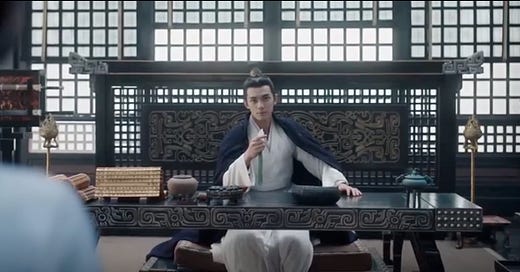



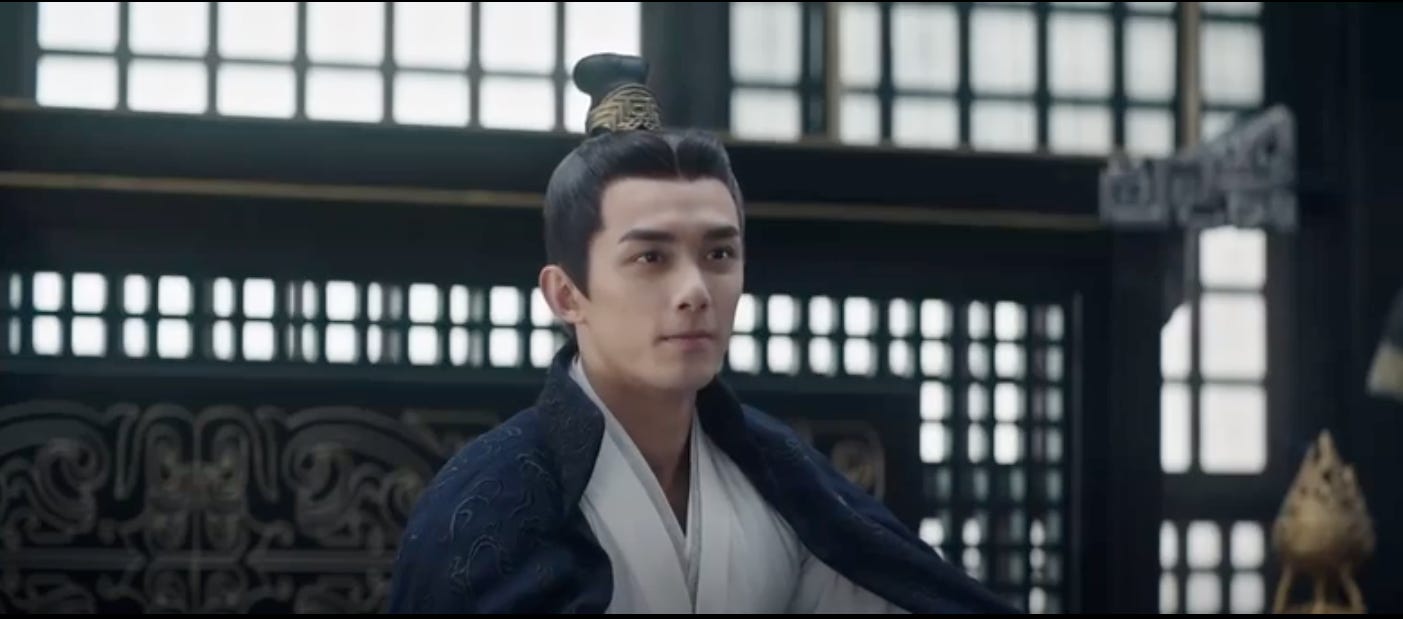

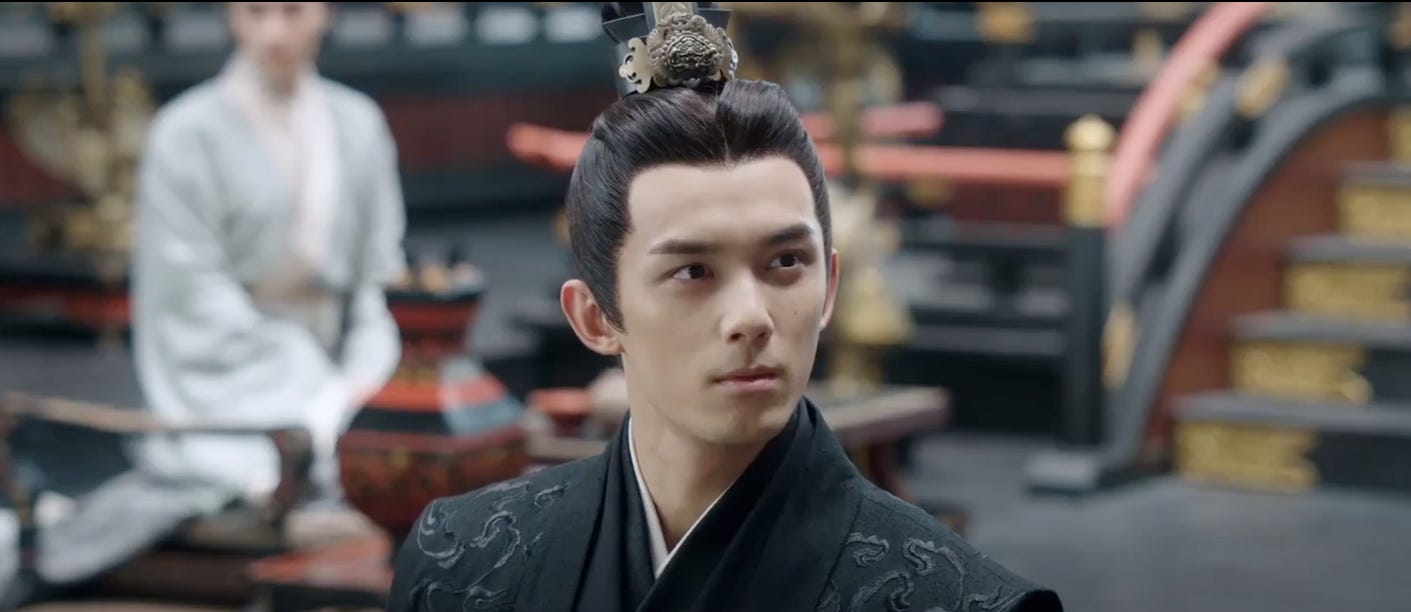
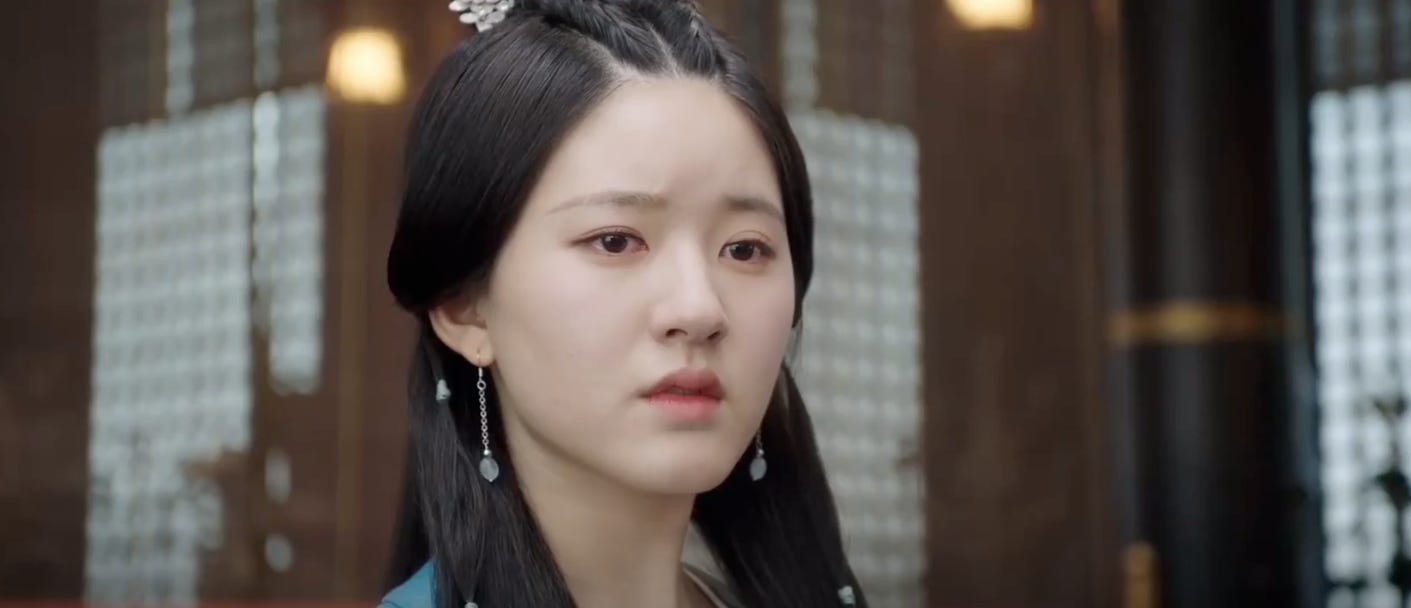
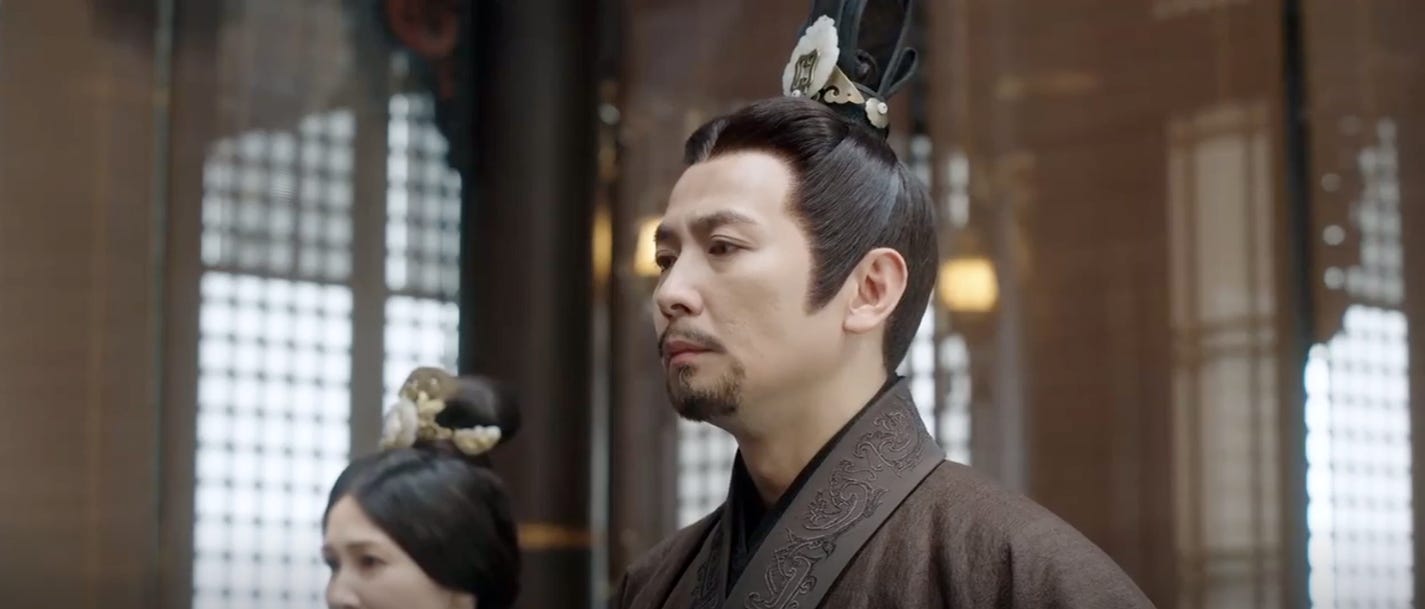
Loved your article, and agree with you that LBY is a strategist not an insensitive male, with regards to his approach to marriage. He speaks about being undressed and treated by SS in front of her parents and fiancee, he tricks her father out of his mansion so he can talk to her, he breaks the blockage to bring her & famiky in the city under guard - all to show there is a special relation. Also, he ask the emperor to act as his elder because he knew his father wouldn't, and knew that SS and her family might refuse him because everyone is scared of him ..so only an imperial request would guarantee the victory he needs.
However, at no time did he try to break SS engagement, bug he did tell her to make sure she makes the right choice, and that he will even try to help LY get a secure position.
This is a man who will do everything for his loved one, and as such he deserves respect and admiration and loyalty , at least.
Great analysis! You hit all the spots for me.